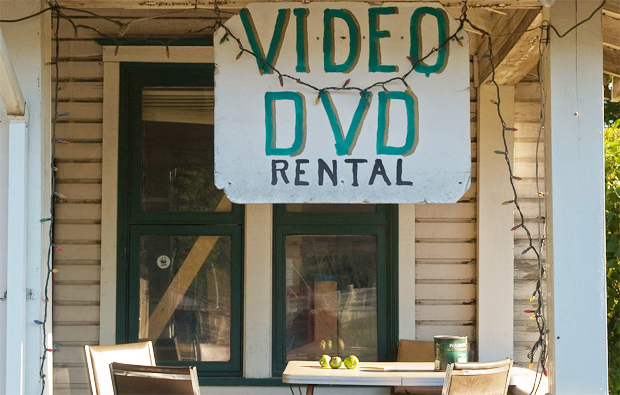
UPDATE:H.R. 2471, the bill that would enable Netflix subscribers to share their viewing habits on Facebook, passed the House in a bipartisan vote. "It was a close vote," says Matt Lira, digital communications director for House Majority Leader Eric Cantor. Shockingly, more than 116 members of Congress voted against the bill.
EARLIER: Bipartisan bill H.R. 2471 would create a way for people to expressly allow companies like Netflix or Facebook to share their video rental history on the web. And it's scheduled for a floor vote later today.
If passed, it would correct a frustrating situation outlined by Netflix CEO Reed Hastings in September, when he joined Mark Zuckerberg on stage at the f8 developer conference to make a surprise announcement: Netflix's domestic subscribers would not be able to integrate their accounts to share films and TV shows on Facebook's open graph. Fourty-four of the 45 countries where Netflix is available--in Latin America, Canada--have access to the new Facebook integration that lets them share their movie watching choices. But in the U.S., an antiquated 1988 bill called the Video Privacy Protection Act forbids the disclosure of one's video rental information--even if the renter is okay with the disclosure. So domestic subscribers of Netflix would have to wait.
Seems like an easy fix--today's legislation adds a sentence-length amendment to the original law. However, the legislation, which has supporters and co-sponsors from both sides of the aisle, is facing detractors, namely one sources say is Rep. Mel Watt of North Carolina.
"My understanding is that, in committee, he didn't understand why people would want to share this content. He doesn't use social media in his everyday life, so how can we expect him to understand the value of sharing content? I don't think he gets it," says Matt Lira, the digital communications director for House Majority Leader Eric Cantor. "Second, it seems he's concerned that people might be duped into sharing this information. My response to that is if you knew anything about the social web, you'd know if I started sharing your content without your permission you're going to know right away because it's an extraordinarily public app. You'll stop using the product [if that happens] because you'll be pissed off. And if any company has a sensitivity now to listening to their users, it's Netflix."
Requests to Rep. Watt's office for comment were not immediately returned. Netflix could also not immediately be reached for comment.
Lira stresses that this is a remarkably simple, bipartisan bill. Myriad applications, such as Spotify, already provide users with the ability to share content on Facebook. But because of the outmoded Video Privacy Protection Act, designed before renting and subscribing to a video service online was even a possibility, Netflix is not able to provide that same access. "Spotify shows that while not everyone is going to use it [on Facebook], there are millions of people want to use it," he says. "For one guy who doesn't even use social media, to stand in the way, is offensive to me."
Of course, the bill could still pass. But because H.R. 2471 is a suspension, a procedure designed to pass non-controversial bills, passing it takes more than a majority vote on the floor. Lira is concerned that if any naysayers are able to drum up support, the bill might not pass.
With Congressional job approval at a shockingly low 12.3%, this wouldn't come as a surprise to the public, which has already endured much Washington gridlock through debt ceiling talks and jobs bills. But for something as simple as an update to the VPPA, to provide users with Netflix-Facebook integration, Lira finds it especially frustrating.
"This is how it's supposed to work: Republicans and Democrats didn't play partisan games with it, there are no poison pills, no riders, no like tax provisions or something," he says. "It's just simple. There's a problem, we've heard from the public about it, and we've moved to fix it. It has Republican and Democratic co-sponsors. This is a bipartisan coalition--hopefully it will get through."
Lira adds, "I believe that this legislation is an example of how Congress should work--a technical problem that prevents the public from innovating, fixed in a bipartisan way without any riders, that simply solves the problem."
[Image: Flickr user Nouspique]